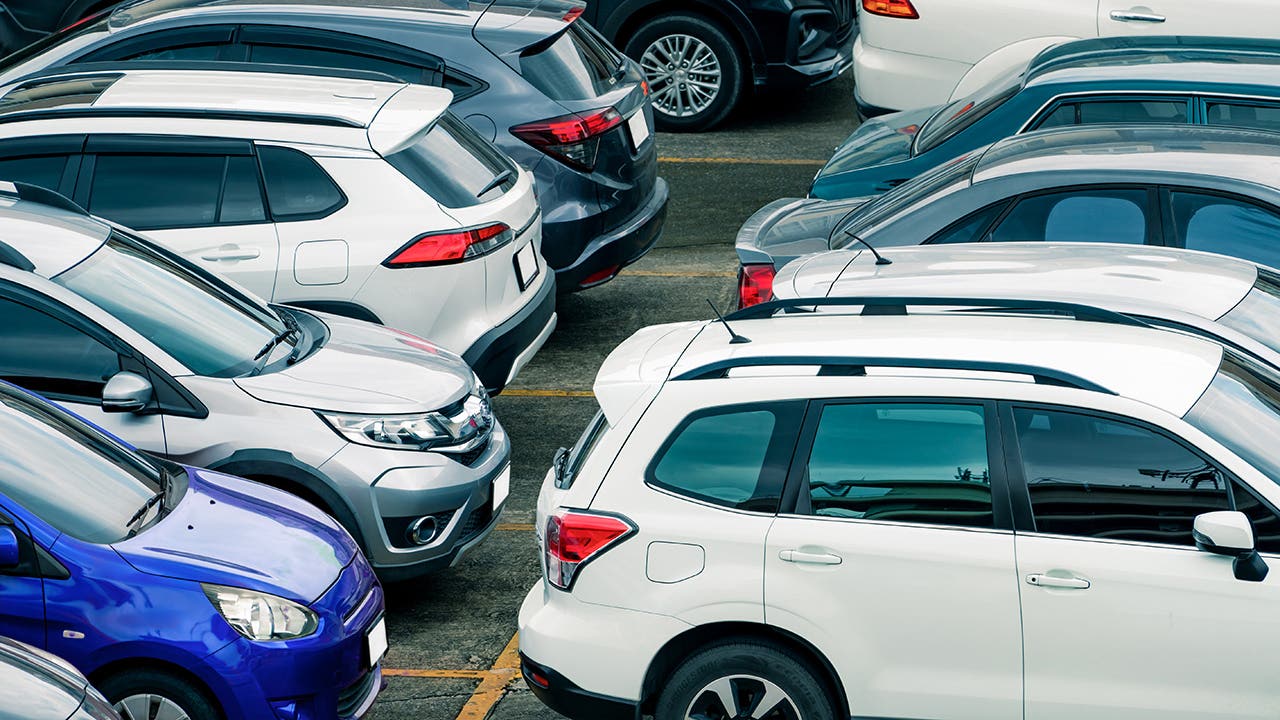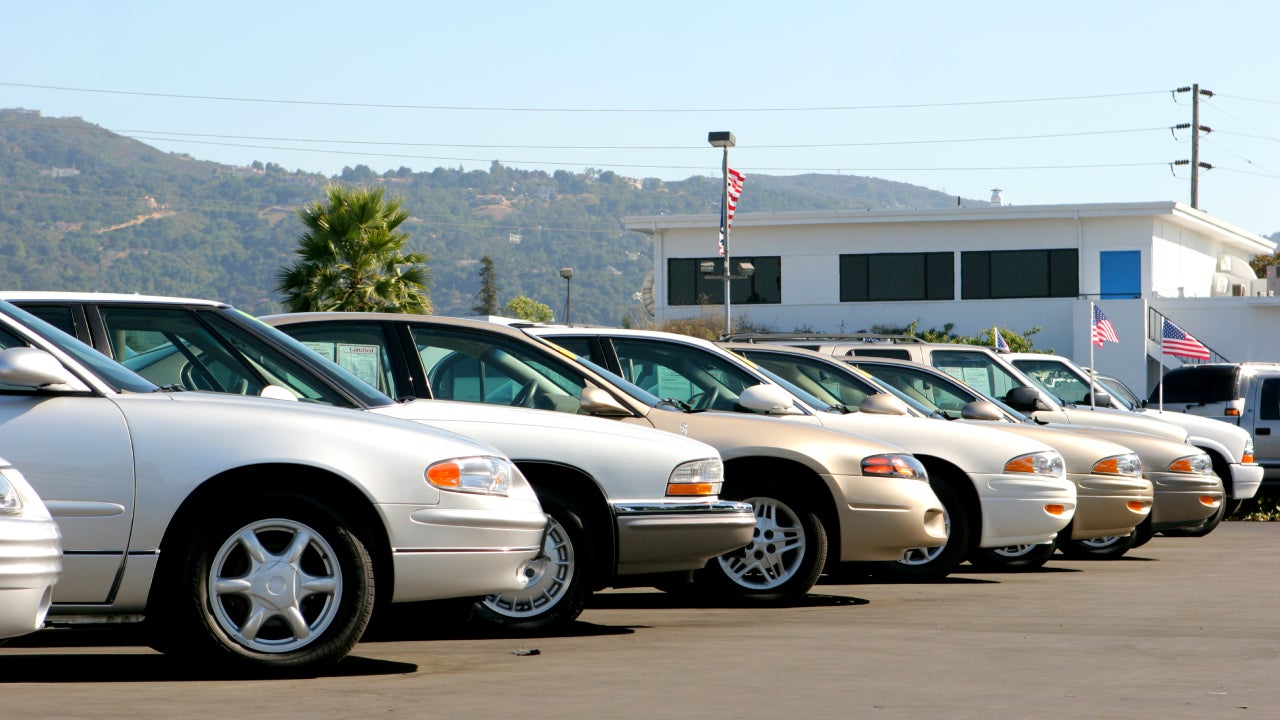New vs used car insurance

Key takeaways
- Vehicle age is just one factor that affects car insurance costs. Coverage types, coverage costs and discounts also play a role.
- Comprehensive and collision coverage are typically required for new and used vehicles that are leased or financed.
- Certain safety features on newer vehicles may qualify them for insurance discounts, and more expensive parts may drive the cost of insurance up.
- Shopping around and comparing rates from multiple companies is recommended to find the best car insurance policy for you.
Whether you purchase your vehicles new or used, the cost of insurance is one factor you may want to consider when deciding on the best car for your purposes. There are multiple factors — including age — that insurers take into account when determining your rate. That may mean that you’ll pay less for insurance on a used car than you would on a new one. But that’s not always the case. Bankrate’s insurance editorial team reviewed the facts you need to know to answer the question, is it cheaper to insure a new or used car?
What’s the difference between insuring a new car vs a used car?
Are new cars cheaper to insure? That depends on a number of factors. Insurers do not typically have specific policies for insurance on a new car versus a used one. That said, the make and model of your vehicle will drastically influence the cost of car insurance.
For instance, the Subaru Outback and Honda CRV are two of the cheapest cars to insure. However, quotes for a 2005 Subaru Outback versus a 2021 model will likely vary. Why? Rates for these two vehicles may fluctuate due to new vehicle discounts, different safety features or the cost of replacement parts. The 2021 Outback may have more expensive replacement parts, and this could drive the cost of its insurance policy up. However, its status as a Top Safety Pick Plus from the Insurance Institute for Highway Safety and a suite of available safety features may qualify it for extra savings.
The bottom line? New cars are not always more expensive to insure, and used cars are not always cheaper. Vehicle age is just one of many factors that affect car insurance costs; it is crucial to also consider your coverage types, coverage costs and discounts when insuring your vehicle.
Coverage types
When your vehicle is leased or financed, it’s likely that your lender will require you to carry certain types and limits of insurance. One of the most common requirements is that you carry full coverage. This generally means that you carry at least your state’s minimum liability requirements plus optional collision and comprehensive insurance.
Collision and comprehensive help pay for damage to your car in an at-fault accident or other vehicle mishap — including events such as a tree falling on your car or vandalism. You may also need to carry higher-than-minimum levels of liability insurance to satisfy your leasor, which can be a good idea even if you own your car outright, in order to give you more robust coverage.
Additionally, gap insurance may be an option for new vehicles that are financed or leased. This coverage pays the difference between the amount you owe on a vehicle versus its depreciated value determined at the time of its total loss. Sometimes this difference is worth thousands of dollars, so gap insurance can help keep you from getting further upside down on your loan.
Coverage costs
Another factor influencing the cost of premiums is how much certain coverage types cost. Newer vehicles may have extra safety features, reducing the severity of injuries or vehicle damage. This could mean that costs of certain coverage types, like personal injury protection and collision, may be affected due to the reduced risk.
However, if parts are more expensive for a newer vehicle than a used one, comprehensive and collision coverage may be cheaper for the used car. These variables are all considered by insurance companies based on the vehicle’s VIN to help determine total insurance costs for the vehicle.
Discount options
Nearly all insurance providers offer discounts and often reward policyholders for driving vehicles with advanced safety features or new vehicles. Discounts such as anti-theft, airbags and anti-lock brakes are examples of features that could earn a safety discount.
Many providers also offer a new car discount, but the discount is usually for vehicles less than three years old. Plus, keep in mind the discount may decrease slightly each year that passes, and after three years, the discount usually is no longer available. Discounts on safety features and the age of the car may be significant enough to offset the higher price of insurance for a new vehicle.
How do I find the right car insurance?
To determine the right kind of car insurance for you, consider your needs. Not every driver needs the same type of coverage. For example, some drivers may want insurance that includes roadside assistance, while others may be more concerned about finding the cheapest car insurance policy possible. Whether or not it is cheaper to insure a new or used car will depend on the amount of coverage you need; your driving record; where you live; your age, gender and credit history (depending on where you live); available discounts and how frequently you drive.
To find the right kind of car insurance for you, you may want consider the following as you search:
- Customer satisfaction: If customer service is important to you, there are organizations that measure customer satisfaction. J.D. Power is a trusted source in the insurance industry.
- Financial strength: Companies with strong financial strength scores have historically been reliable for paying covered claims. Consider referring to AM Best to find a car insurance company’s financial strength.
- Coverage options: Look for car insurance companies that offer the coverage types you want or need for your situation. Some companies offer more endorsement options, while others offer more slimmed-down policy options.
- Cost: Even if cost is not your number one concern, there is no reason to overpay for car insurance. Once you have decided what type of coverage you want, consider comparing quotes for the same coverage from multiple companies to find the best rates for you. Ask about each insurer’s available discounts to save even more.
Frequently asked questions
-
-
There’s no single company that always offers the best coverage for everyone, all the time. To find the best option for your needs, consider your priorities. For example, if you have a teen in your family, you may want to look at companies known for writing good policies for young drivers. If you are retired or work from home and know you’re a good driver, you may save money if you make use of a policy with a telematics program. If you or someone in your family has a military connection, on the other hand, you may want to look at companies known for writing affordable policies for military members. Once you’ve narrowed down the factors that are most important to you, it becomes easier to choose the best car insurance company for your unique needs.
-
When you pay off the auto loan for your vehicle, the cost of insurance premiums does not automatically decrease. Depending on the age of their vehicle, some drivers may choose to remove comprehensive and collision coverage when their car is paid off (since the lender almost always requires it). However, it may make more financial sense to continue carrying these coverage types under certain circumstances, like if your vehicle is relatively new.
-
Just like the ‘best’ car insurance companies, the cheapest car insurance companies will be different for everyone. If you have a poor driving history, you may find better rates with a company that specializes in high-risk drivers and offers lots of discounts. If you are a very safe driver but own a more expensive car and live in a congested area, you might benefit from looking at companies that offer usage-based, or telematics, programs to help you save.
-
What you pay for car insurance for a new versus used vehicle will depend on multiple factors. Your vehicle’s age is just one variable in the equation providers use to estimate your premium. When shopping for car insurance, experts recommend that you shop around and compare rates before finalizing your policy.
-
Why we ask for feedback Your feedback helps us improve our content and services. It takes less than a minute to complete.
Your responses are anonymous and will only be used for improving our website.









